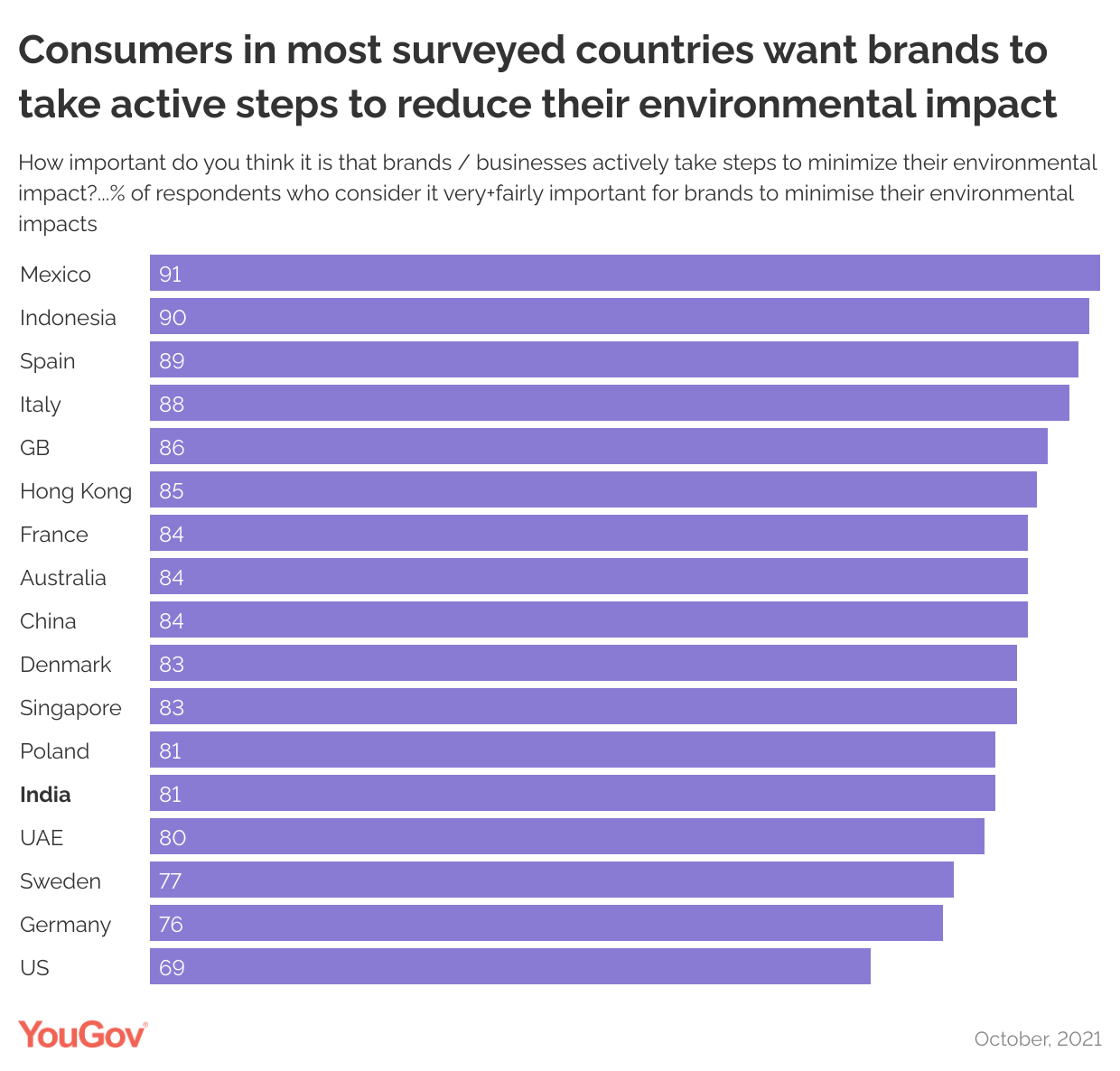
Sustainability was once a niche topic for brands and consumers. However, it has been elevated to the forefront of the agenda and has seen a dramatic increase in public awareness over environmental issues in recent years.
A YouGov international survey that polled more then 19,000 people in 17 countries found that 81 percent of urban Indians consider it ‘important’ for brands and businesses to take steps to minimize their environmental impact.
Many Indian and global brands are actively communicating the need for a sustainable future. Nearly half (46%) of Indian respondents were open to the idea that brands should use their advertising and marketing to discuss sustainability and environmental issues. However, 40% of respondents said that only brands that have done significant work to improve the environment should be discussed. Only seven percent of respondents are against the idea of brands discussing this topic.

A higher proportion of female respondents stated this, which indicates that women feel more strongly on this issue than men (83 percent vs.79 percent). This view is also supported by the majority of older adults 55+.
Globally, in addition to India, respondents from Asian markets such Indonesia (90%) or Hong Kong (85%), strongly support the idea of businesses/brands taking steps towards reducing their environmental impact. The lowest percentage of respondents say this is in western markets, such as the US (69%), Sweden (77%) and Germany (76%).
Consumers expect brands to speak up. They are also likely to support such efforts with half (50%) saying that they respond to advertisements about global issues, such as sustainability and the environment. These ads are equally popular across India, with the exception of young adults aged 18-24 who are less likely than others to respond.
YouGovs Profiles data, which is a tool for segmenting audience data, shows that almost two-thirds of respondents (64%) agree with the statement I don’t mind paying more for products that are better for the planet. This statement is more common in adults over 30 than in younger generations.
Deepa Bhatia is the general manager at YouGov. She stated that consumers are becoming more aware of the negative effects of their consumption on the environment. Our recent global study also shows that this is true in India. Today’s consumers expect brands take a proactive approach to environmental issues and take steps towards reducing their negative impacts on the environment. To thrive in the future, a brand must meet consumers’ expectations by setting sustainability goals and communicating them effectively.

According to Booking.com’s 2022 Sustainable Travel Research Report, 64% of Indian travelers believe that accommodations and transport providers have a significant influence on their property and transport decisions. 88% of Indian travellers believe they would prefer to stay in sustainable accommodation, regardless of whether they were specifically looking for one.



